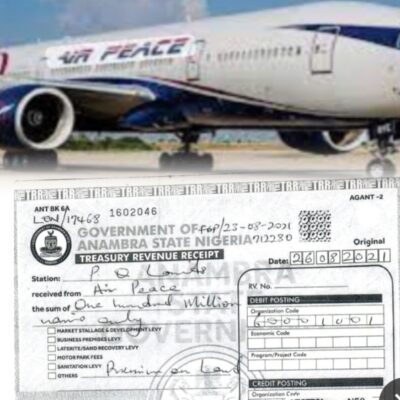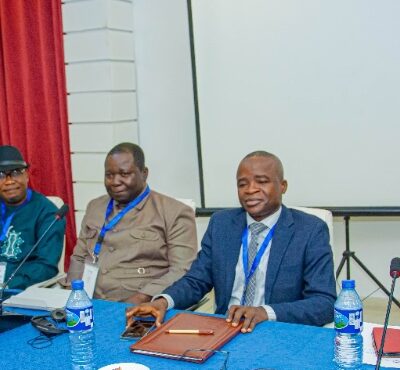
BY OLAPEJU OLUBI
Buoyed by the need to enhance national aviation security and align with global best practices, the Nigeria Civil Aviation Authority (NCAA) has issued a directive mandating all aviation security personnel in Nigeria to undergo a standardised baseline training and certification process before deployment.
The directive, conveyed through an official circular dated March 25, 2025, and signed by the Director General of Civil Aviation, Captain Chris Najomo, requires the immediate adoption of the Basic AVSEC Standard Training Package (STP 123) as the foundational training programme for all personnel involved in aviation security duties.
The policy, which becomes effective from October 1, 2025, is in line with Standard 3.4.1 of ICAO Annex 17 and has been fully integrated into Nigeria’s National Civil Aviation Security Training Programme (NCASTP).
According to the NCAA, this move is designed to ensure that all personnel charged with implementing aspects of the National Civil Aviation Security Programme (NCASP) possess the critical knowledge, skills, and competencies required to perform their roles effectively and in accordance with national and international aviation security standards.
The directive applies to all stakeholders within the aviation ecosystem, including aerodrome and aircraft operators, air traffic service providers, cargo and mail handlers, ground handling and catering providers, AVSEC service companies, and other aviation allied services.
In addition to the training requirement, the directive mandates the certification of all personnel assigned to screening duties, whether screening passengers, baggage, vehicles, or other items, using X-ray machines or other security technologies.
The certification process, as stipulated in Section 3 of the National Civil Aviation Security Certification Programme (NCASCP), is now a prerequisite for all security screeners operating within the country’s civil aviation system.
The NCAA has also emphasised that all relevant operators must ensure that both existing and newly recruited AVSEC personnel complete the STP 123 training before they are deployed to perform independent duties.
Furthermore, service providers are required to maintain proper documentation of training activities and certification status, which must be made available for review during inspections and audits conducted by NCAA officials.
The directive, according to the NCAA, is a departure from the past and represents a renewed commitment to elevate aviation security standards across Nigeria’s airports and aviation facilities.
The regulator said that by institutionalising structured training and formal certification, it will foster a culture of professionalism and vigilance that is essential for protecting the integrity of Nigeria’s aviation industry.
The NCAA boss expressed confidence that operators and stakeholders will ensure full compliance within the stipulated timeline, as the NCAA continues to prioritise the safety, security and resilience of the nation’s airspace.





